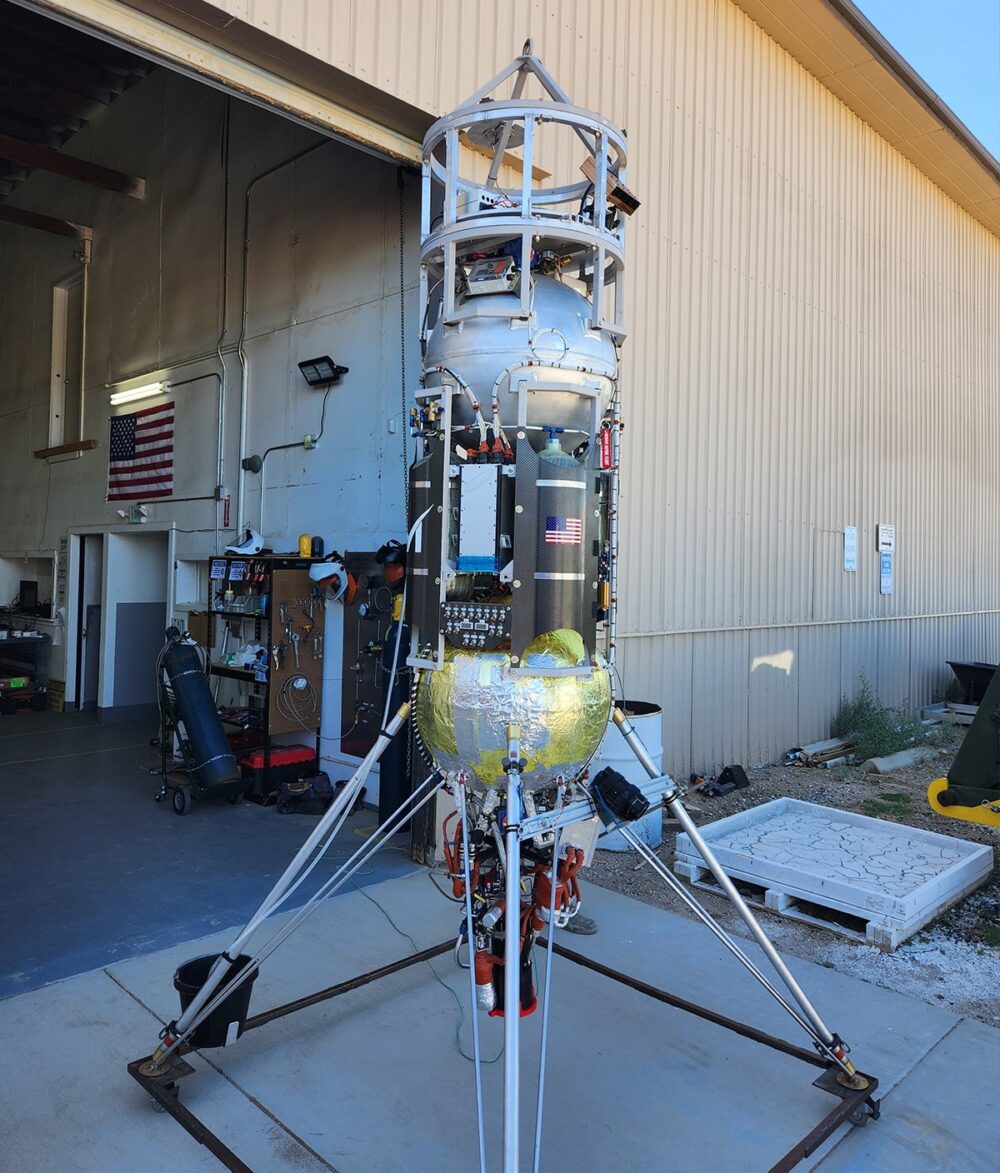From a $34.6 million NASA Tipping Point partnership to participating in the launch of Pittsburgh’s Space and Defense Innovation District, Astrobotic has had an eventful year. With barely three months left of 2023, the North Side-based space tech company is determined to keep making progress.
Most recently the company celebrated its first successful flight campaign for the Xodiac rocket in Mojave, California in partnership with the University of Central Florida.
Sean Bedford, director of business development for Astrobotic’s propulsion and test department, told Techncial.ly the successful flight campaign is a win for both Astrobotic and the city because it provides a direct route for other companies to test out innovative new systems in a realistic environment. The company’s lunar surface proving ground will provide a realistic lunar environment for testing new robotic systems and sensing systems, instead of space, he said. That will be useful when it comes to future projects.
“That’s only going to grow as we actually bring online a really exciting new capability and a new environment for testing, which is our lunar surface proving ground,” Bedford said. “We’re getting ready to break ground in this shortly, and the lunar surface ground will be a two-and-a-half acre simulated lunar.”
It takes a team of no more than 10 people to conduct the flight testing in California, which includes a launch conductor, an operations manager and a pilot, among other positions. With the flight testing a success, moving forward, the company’s lunar race maps will be leveraged to be a representative of a landing site at the lunar South Pole, Bedford said.
When it comes to the technology, Bedford — who came to Astrobotic from Masten Space Systems when the latter was acquired in September 2022 — said that prior to the acquisition, the rocket was a part of a successful business line. Without the acquisition, Bedford believes the Xodiac would still be viable, but as a part of Astrobotic, it’s been taken to the next level.
“Because we now have the in-house ability to build our own guidance navigation systems around sensors through our space robotics department, take those out to Mojave, fly them on Xodiac, [and] test them out in a very relevant and realistic setting, and then transition that technology to our lunar landers for operation on the moon,” he said.
Speaking of the moon: Astrobotic’s latest step forward includes a new date for its much-anticipated and previously delayed lunar launch.
While “Star Wars” fans had been eagerly looking forward to a May 4, 2023 takeoff of the Peregrine lunar lander, you can now mark your calendar for Dec. 24, Astrobotic announced today.
Reminder: The Carnegie Mellon University student-built Iris which will be attached to the Peregrine lunar lander, too. Weighing roughly four pounds, the Iris will be the first American-developed rover to land on the moon, the first lunar rover not produced by a national agency, and the first student-made rover. Thus, should all go according to plan, the launch will be cause for celebration for CMU and Astrobotic alike.
With its most recent markers of success, Bedford feels Astrobotic has gained even more momentum and legitimacy in the field of space exploration. In the future, he said, the goal is to keep developing its technology and continue contributing to the city’s robotics sector.
“We’re very proud of this because it allows us to advance critical new technologies for NASA and for commercial partners who are looking to go to the moon and Mars or other places in the solar system,” Bedford said.







